
Laxman Jhula: The Vibrant Heart of Rishikesh
Laxman Jhula, a picturesque suspension bridge spanning the Ganges River, is one of the most iconic landmarks in Rishikesh, India. This pedestrian bridge, named after the Hindu deity Laxman, offers stunning views of the river and surrounding hills, making it a must-visit for tourists. The bridge is not only a vital crossing point but also a gateway to the spiritual and cultural richness of Rishikesh. The area surrounding Laxman Jhula is a hub of activity, filled with bustling markets, quaint cafes, and historic temples. Tourists can explore numerous ashrams where yoga and meditation are taught, making it a perfect destination for those seeking peace and spiritual growth. The sound of temple bells, the smell of incense, and the sight of saffron-clad monks create an atmosphere that is both serene and vibrant. Adventure enthusiasts will find plenty to do here as well. The Ganges River offers opportunities for thrilling activities like white-water rafting and kayaking. The nearby hills provide excellent trekking paths, with trails leading to stunning viewpoints and hidden waterfalls. Laxman Jhula's unique blend of spirituality, culture, and adventure makes it a versatile destination catering to a wide range of interests.
Local tips in Laxman Jhula
- Visit early morning or late evening to avoid crowds and enjoy the serene beauty of Laxman Jhula.
- Wear comfortable shoes as the area involves a lot of walking, especially if you plan to visit nearby temples and ashrams.
- Keep some cash handy as many small shops and eateries might not accept cards.
- Respect local customs and traditions, especially when visiting religious sites.
Laxman Jhula: The Vibrant Heart of Rishikesh
Laxman Jhula, a picturesque suspension bridge spanning the Ganges River, is one of the most iconic landmarks in Rishikesh, India. This pedestrian bridge, named after the Hindu deity Laxman, offers stunning views of the river and surrounding hills, making it a must-visit for tourists. The bridge is not only a vital crossing point but also a gateway to the spiritual and cultural richness of Rishikesh. The area surrounding Laxman Jhula is a hub of activity, filled with bustling markets, quaint cafes, and historic temples. Tourists can explore numerous ashrams where yoga and meditation are taught, making it a perfect destination for those seeking peace and spiritual growth. The sound of temple bells, the smell of incense, and the sight of saffron-clad monks create an atmosphere that is both serene and vibrant. Adventure enthusiasts will find plenty to do here as well. The Ganges River offers opportunities for thrilling activities like white-water rafting and kayaking. The nearby hills provide excellent trekking paths, with trails leading to stunning viewpoints and hidden waterfalls. Laxman Jhula's unique blend of spirituality, culture, and adventure makes it a versatile destination catering to a wide range of interests.
Iconic landmarks you can’t miss
Triveni Ghat Rishikesh
Experience the serene beauty and spiritual essence of Triveni Ghat in Rishikesh, a must-visit destination for every traveler seeking tranquility and cultural richness.
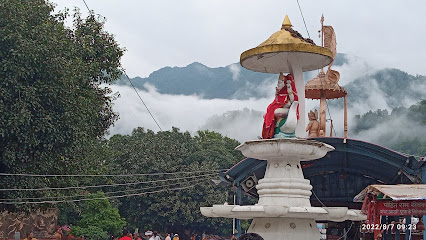
Ram jhula
Discover the spiritual essence of Rishikesh at Ram Jhula, a stunning suspension bridge over the Ganges River, rich in culture and natural beauty.
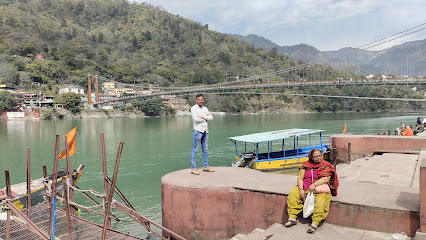
Parmarth Niketan Ashram
Experience peace and spiritual growth at Parmarth Niketan Ashram, a yoga retreat center in the heart of Rishikesh, India.
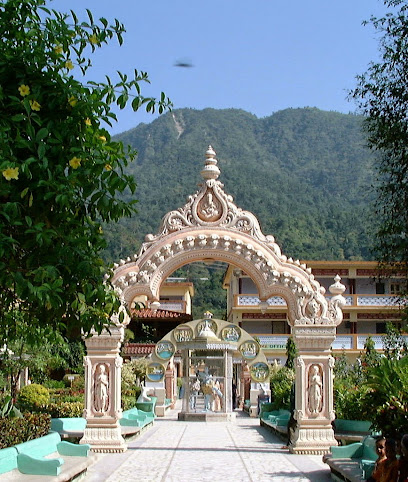
Lakshman Jhula
Discover the spiritual charm and breathtaking views of Lakshman Jhula, an iconic bridge in Rishikesh, perfect for adventurers and spiritual seekers alike.
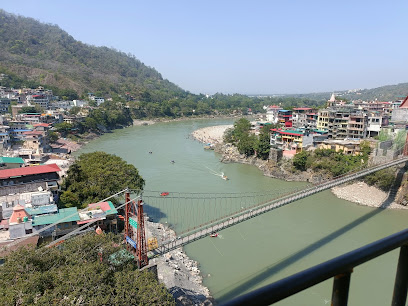
Lakshman Temple
Explore the spiritual essence of Rishikesh at Lakshman Temple, a magnificent Hindu temple dedicated to Lord Lakshman, set against stunning Himalayan scenery.
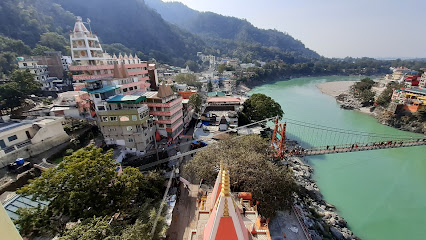
Laxman Jhula View Point
Discover the serene beauty and spiritual essence of Laxman Jhula View Point in Rishikesh, where breathtaking views await every traveler.
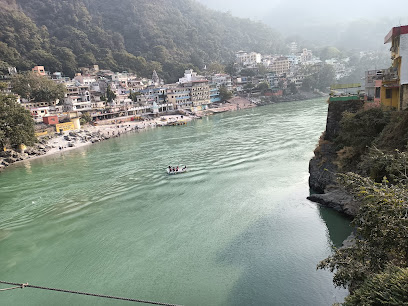
Sai ghat
Discover tranquility and spiritual rejuvenation at Sai Ghat, a picturesque retreat along the Ganges in Rishikesh, Uttarakhand.
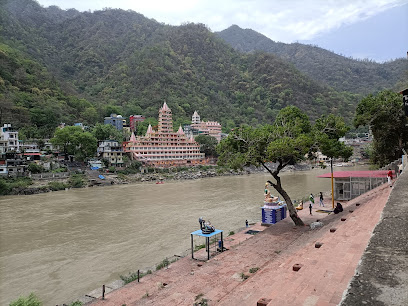
Laxman Jhula Rishikesh (U K)
Discover the enchanting Laxman Jhula in Rishikesh – a spiritual bridge that connects nature, culture, and adventure along the sacred Ganges River.
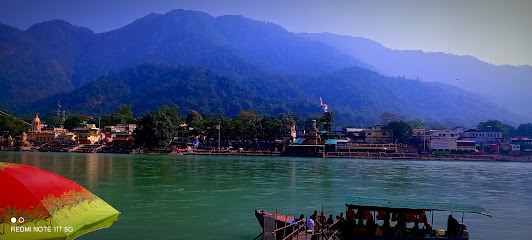
Lakshman Jhula Ghat
Discover the spiritual charm and stunning beauty of Lakshman Jhula Ghat in Rishikesh, the ultimate destination for peace and adventure.
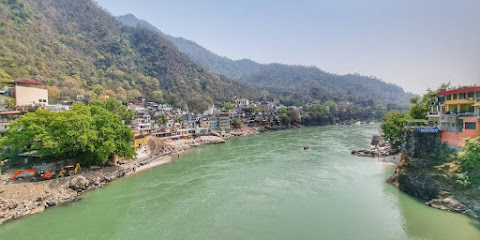
Lakshman Jhoola Shortcut
Explore the Lakshman Jhoola Shortcut in Rishikesh, a serene pathway leading to spiritual landmarks amidst breathtaking nature.
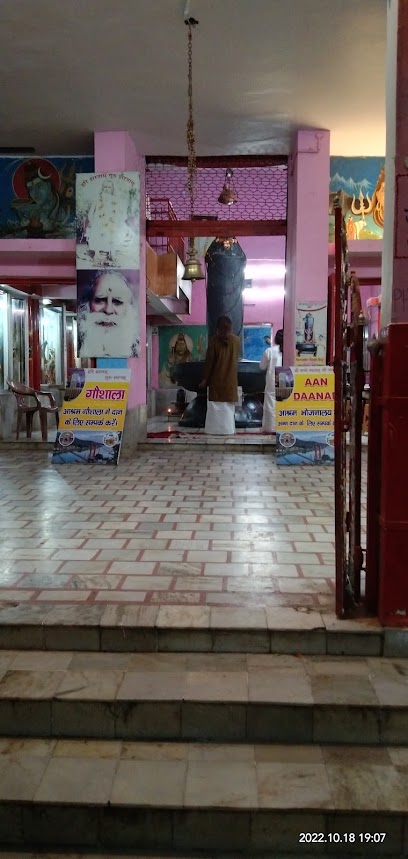
Unmissable attractions to see
Rishikesh View Point
Experience the serene beauty of Rishikesh View Point, where breathtaking landscapes meet the spiritual essence of the Ganges River.
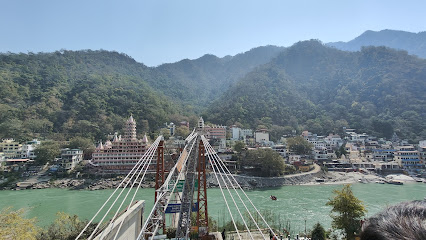
Lakshman Temple
Experience the spiritual essence and historical beauty of Lakshman Temple in Rishikesh, a sacred site for travelers and devotees alike.
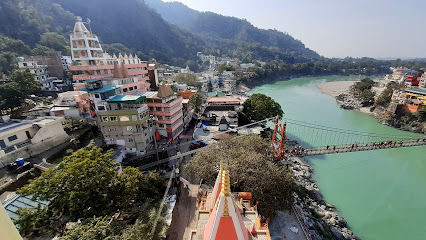
Sai ghat
Experience serenity and spirituality at Sai Ghat in Rishikesh, a picturesque destination along the Ganges River blending nature and culture.
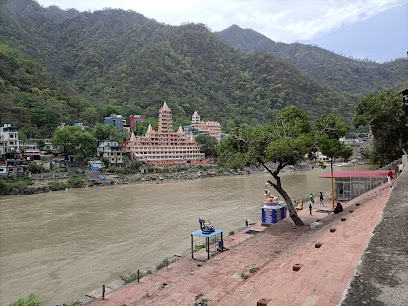
Lakshman Jhula Ghat
Explore the spiritual essence of Rishikesh at Lakshman Jhula Ghat, where tranquility meets adventure along the Ganges River.
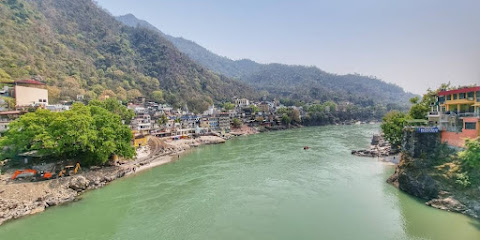
Essential places to dine
Little Buddha Cafe
Experience tranquility at Little Buddha Cafe in Rishikesh - savor delicious vegetarian meals in serene surroundings.
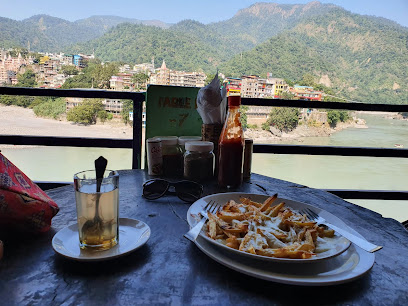
GANGA VIEW CAFE
Discover culinary bliss at Ganga View Cafe in Rishikesh - where breathtaking views meet deliciously diverse cuisine.
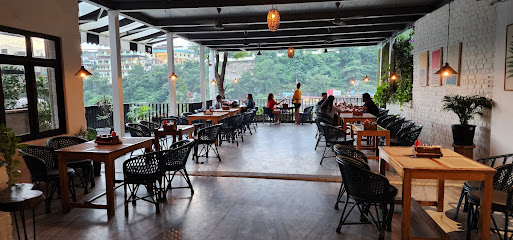
Cafe Royale Rishikesh (Coffee house and Restaurant)
Experience delightful vegetarian cuisine at Cafe Royale Rishikesh while soaking in stunning views of the River Ganga and enjoying live music.
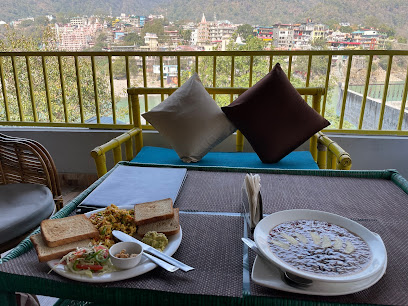
The Monkey House Cafe
Experience culinary delight at The Monkey House Cafe in Rishikesh, offering diverse cuisines from around the world amidst scenic beauty.
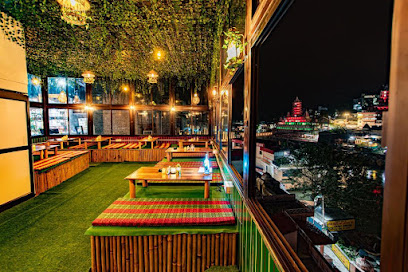
Purple Dhaba
Experience authentic North Indian vegetarian cuisine at Purple Dhaba in Rishikesh's vibrant Laxman Jhula area.
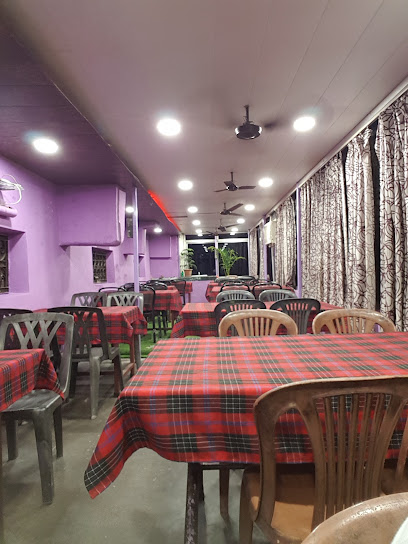
La Bella View Restro Café
Discover culinary delights at La Bella View Restro Café in Rishikesh - an exquisite blend of Italian and Indian flavors amidst stunning scenery.
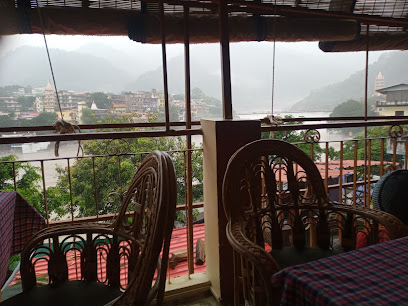
LUCKY RESTAURANT_Best Indian Food
Experience authentic Indian vegetarian cuisine at Lucky Restaurant in Rishikesh - a must-visit for food lovers!
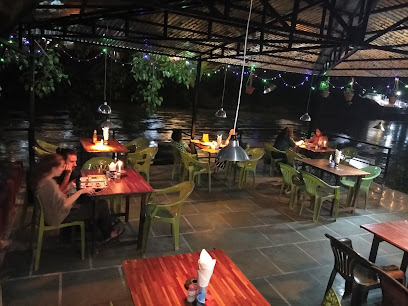
Sky rooftop restaurant laxman jhula
Experience breathtaking views and delicious vegetarian cuisine at Sky Rooftop Restaurant in Laxman Jhula, Rishikesh - a must-visit dining destination.
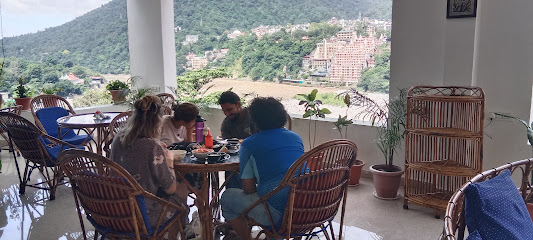
Flavours A Multi Cuisine Restaurant
Experience delightful vegetarian cuisine at Flavours A Multi Cuisine Restaurant in Rishikesh – where every meal is a journey through flavors.
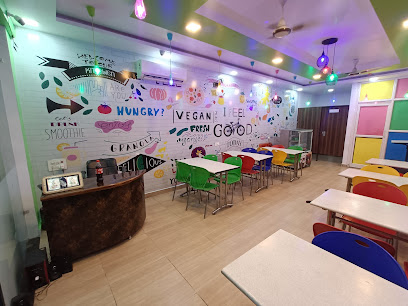
The Raja Palace - Israeli Restaurants
Experience authentic Israeli cuisine amidst the serene beauty of Rishikesh at The Raja Palace near Laxman Jhula.
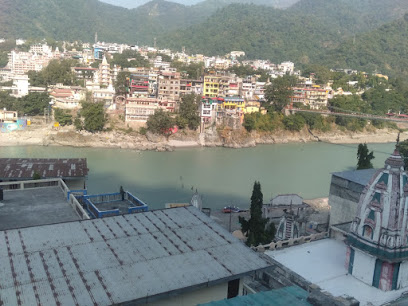
Markets, malls and hidden boutiques
Very Good Shop
Discover unique apparel and handicrafts at Very Good Shop in Laxman Jhula, a must-visit destination for tourists in Rishikesh.
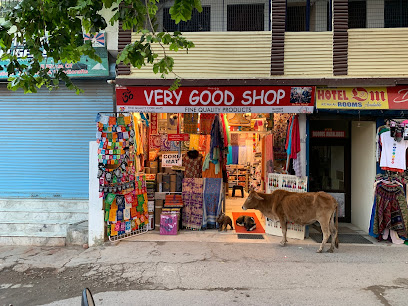
Clothing store
Explore unique fashion at Fashion Cafe in Rishikesh, where local craftsmanship meets contemporary style in a boutique experience.
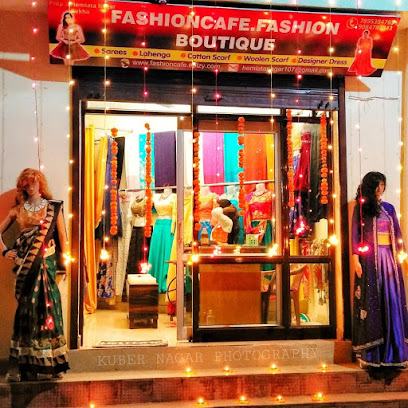
BHANDARI CLOTH HOUSE
Discover exquisite traditional and contemporary clothing at Bhandari Cloth House in Rishikesh, a vibrant shopping destination for unique textiles.
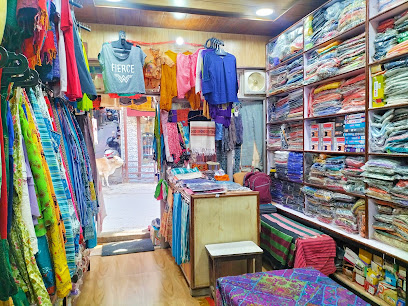
Sunrise collection handicrafts
Explore the vibrant collection of handicrafts and clothing at Sunrise Collection in Rishikesh, where tradition meets contemporary style.
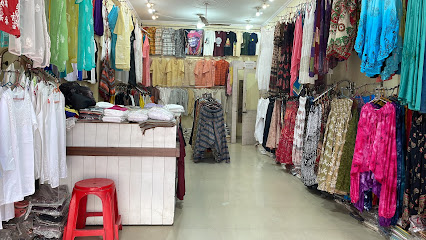
Lhasa Tibet Shop
Explore the charm of Lhasa Tibet Shop in Rishikesh, where unique gifts and spiritual treasures await every traveler.
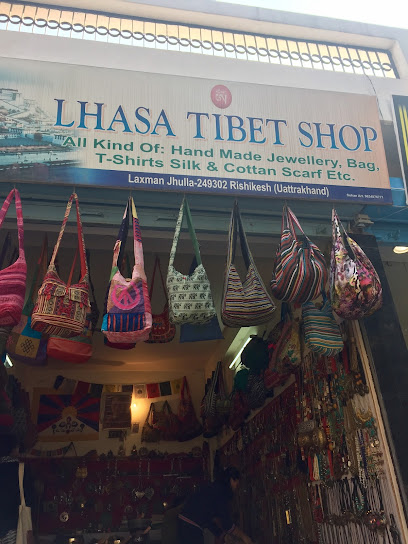
आकाश विकास एंपोरियम
Discover unique handicrafts and souvenirs at आकाश विकास एंपोरियम in Rishikesh, a vibrant store showcasing the rich culture of Uttarakhand.
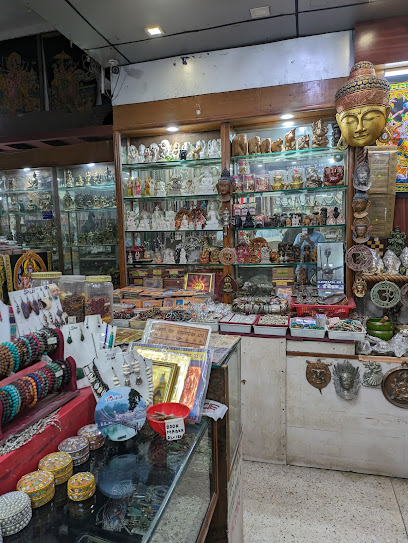
Bhagwan Shop
Discover quality baby products at Bhagwan Shop in Laxman Jhula, Rishikesh - where affordability meets style for your little ones.
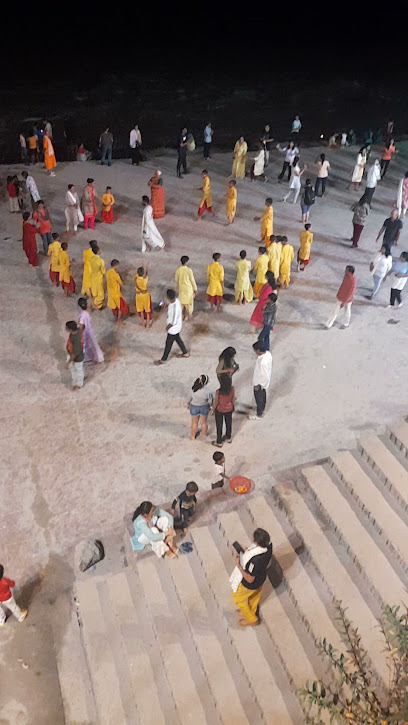
Clothe Market laxman Jhoola
Explore the Clothe Market in Laxman Jhula, Rishikesh, for a unique shopping experience filled with colorful textiles, traditional attire, and local handicrafts.
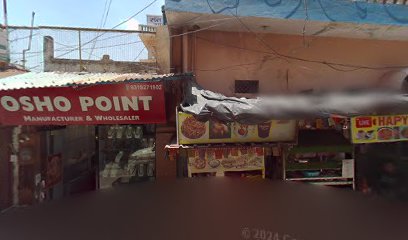
HempSher
Discover eco-friendly treasures at HempSher Gift Shop in Laxman Jhula, Rishikesh - perfect for unique souvenirs and sustainable shopping.
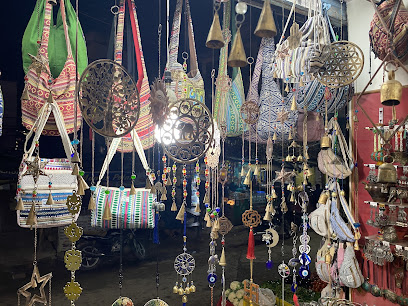
BABACORK
Discover unique treasures at BABACORK, Rishikesh's vibrant store for handcrafted items and local art, perfect for any traveler.
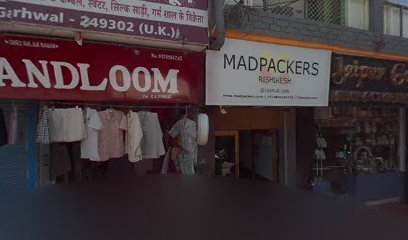
Essential bars & hidden hideouts
The Sitting Elephant - A Rooftop Restaurant Overlooking River Ganga
Experience exquisite dining at The Sitting Elephant, a rooftop restaurant with stunning views of the River Ganga in Rishikesh, offering Indian and Chinese cuisine.
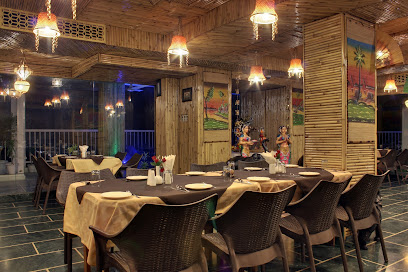
Little Buddha Cafe
Discover the culinary delights of Little Buddha Cafe, a vegetarian haven in Rishikesh offering exquisite dishes and stunning views for a memorable dining experience.
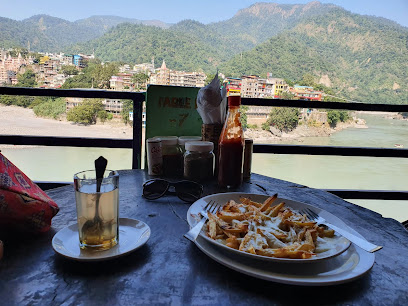
GANGA VIEW CAFE
Discover the flavors of Rishikesh at Ganga View Cafe, where health-conscious dining meets stunning river views.
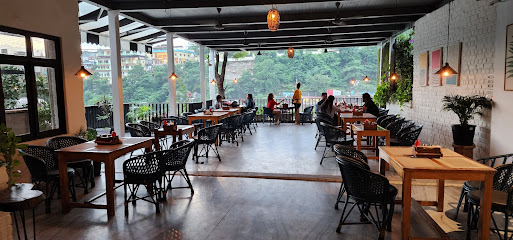
Pink Cafe Bar and Restaurant in Rishikesh
Experience the perfect blend of ambiance and flavor at Pink Cafe Bar and Restaurant in Rishikesh, where every meal is a celebration.
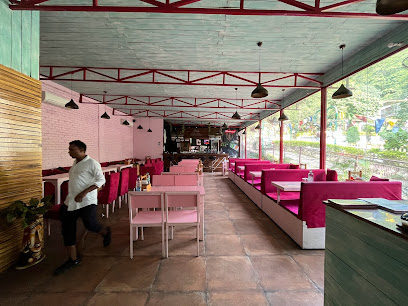
Cafe Royale Rishikesh (Coffee house and Restaurant)
Discover the taste of Rishikesh at Cafe Royale, where vegetarian delights meet stunning views of the River Ganga in a vibrant atmosphere.
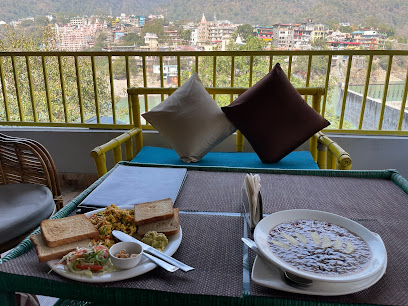
Grill to Chill - Best Restaurant in Rishikesh, Best Bar in Rishikesh, Best Banquet Hall in Rishikesh, Hotel Room in Rishikesh
Discover Grill to Chill in Rishikesh - where delectable cuisine meets vibrant nightlife in a perfect blend of flavors and fun.
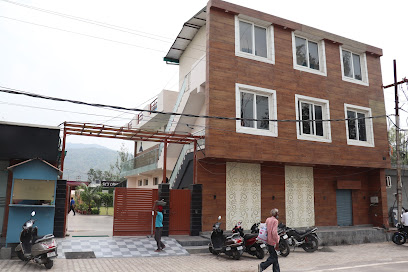
SkyMax Lounge
Experience exquisite fine dining and thrilling adventure sports at SkyMax Lounge in Rishikesh, where culinary delights meet breathtaking views.
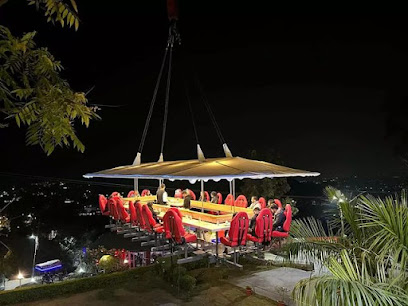
The Verandah Bar
Discover The Verandah Bar in Rishikesh, where tranquility meets exquisite dining and refreshing beverages with stunning views.
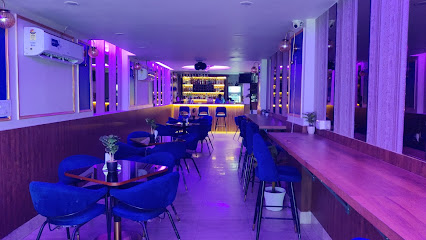
Junglee Bar
Discover the flavors of Rishikesh at Junglee Bar, where grill cuisine meets a lively atmosphere amidst nature's beauty.
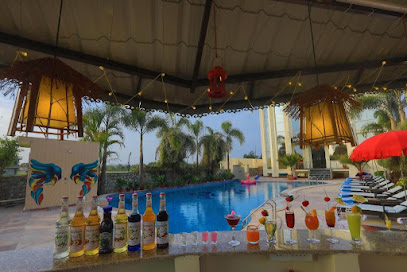
Night Out Disc
Experience vibrant dining and lively nights at Night Out Disc in Rishikesh, where great food meets an energetic atmosphere.
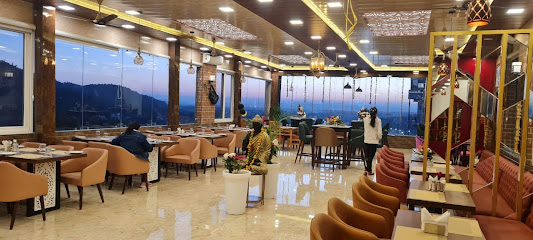
Local Phrases
-
- Helloनमस्ते
[Namaste] - Goodbyeअलविदा
[Alvida] - Yesहाँ
[Haan] - Noनहीं
[Nahi] - Please/You're welcomeकृपया
[Kripya] - Thank youधन्यवाद
[Dhanyavad] - Excuse me/Sorryमाफ़ कीजिये
[Maaf kijiye] - How are you?आप कैसे हैं?
[Aap kaise hain?] - Fine. And you?ठीक हूँ। आप सुनाएं?
[Theek hoon. Aap sunayein?] - Do you speak English?क्या आप अंग्रेज़ी बोलते हैं?
[Kya aap angrezi bolte hain?] - I don't understandमुझे समझ नहीं आया
[Mujhe samajh nahi aaya]
- Helloनमस्ते
-
- I'd like to see the menu, pleaseकृपया मेनू दिखाएं
[Kripya menu dikhayein] - I don't eat meatमैं मांस नहीं खाता
[Main maans nahi khata] - Cheers!चियर्स!
[Cheers!] - I would like to pay, pleaseकृपया मैं भुगतान करना चाहूँ
[Kripya main bhugtan karna chahoon]
- I'd like to see the menu, pleaseकृपया मेनू दिखाएं
-
- Help!बचाओ!
[Bachao!] - Go away!चले जाओ!
[Chale jao!] - Call the Police!पुलिस को बुलाओ!
[Police ko bulao!] - Call a doctor!डॉक्टर को बुलाओ!
[Doctor ko bulao!] - I'm lostमैं खो गया हूँ
[Main kho gaya hoon] - I'm illमुझे बीमारी है
[Mujhe bimari hai]
- Help!बचाओ!
-
- I'd like to buy...मैं खरीदना चाहूँगा...
[Main khareedna chahunga...] - I'm just lookingमैं बस देख रहा हूँ
[Main bas dekh raha hoon] - How much is it?यह कितने का है?
[Yeh kitne ka hai?] - That's too expensiveयह बहुत महंगा है
[Yeh bahut mehnga hai] - Can you lower the price?क्या आप कीमत कम कर सकते हैं?
[Kya aap kimat kam kar sakte hain?]
- I'd like to buy...मैं खरीदना चाहूँगा...
-
- What time is it?कितने बजे हैं?
[Kitne baje hain?] - It's one o'clockएक बजे हैं
[Ek baje hain] - Half past (10)दस बजे बारह
[Das baje barah] - Morningसुबह
[Subah] - Afternoonदोपहर
[Dopahar] - Eveningशाम
[Shaam] - Yesterdayकल
[Kal] - Todayआज
[Aaj] - Tomorrowकल
[Kal] - 1एक
[Ek] - 2दो
[Do] - 3तीन
[Teen] - 4चार
[Char] - 5पाँच
[Paanch] - 6छह
[Chhah] - 7सात
[Saath] - 8आठ
[Aath] - 9नौ
[Nau] - 10दस
[Das]
- What time is it?कितने बजे हैं?
-
- Where's a/the...?यहाँ...कहाँ है?
[Yahan...kahan hai?] - What's the address?पता क्या है?
[Pata kya hai?] - Can you show me (on the map)?क्या आप मुझे दिखा सकते हैं (नक्शे पर)?
[Kya aap mujhe dikhva sakte hain (naksha par)?] - When's the next (bus)?अगली (बस) कब है?
[Agli (bus) kab hai?] - A ticket (to ....)एक टिकट (...के लिए)
[Ek ticket (...ke liye)]
- Where's a/the...?यहाँ...कहाँ है?
History of Laxman Jhula
-
Laxman Jhula, a pedestrian suspension bridge, is steeped in mythological significance. According to local legend, the bridge was built in the exact spot where Lord Rama's brother, Lakshman (or Laxman), crossed the Ganges River on a jute rope while in pursuit of Sita. This event is chronicled in the ancient Indian epic, the Ramayana, and the bridge's name reflects this storied past.
-
During the British colonial period in the late 19th century, Laxman Jhula was constructed to facilitate better access for pilgrims and tourists visiting the sacred town of Rishikesh. Completed in 1923, the bridge became a crucial link between the two banks of the Ganges, allowing easier movement for people traveling to the numerous ashrams and temples that dot the region.
-
In the post-independence era, Laxman Jhula emerged as a focal point for spirituality and yoga. The area became known for its numerous ashrams, including the iconic Parmarth Niketan, which attracted spiritual seekers from around the world. The bridge itself became a symbolic pathway for those seeking enlightenment and peace, embodying Rishikesh’s reputation as the 'Yoga Capital of the World.'
-
Architecturally, Laxman Jhula is a remarkable example of early 20th-century engineering, featuring intricate ironwork and a design that allows for pedestrian traffic while withstanding the region's strong winds and seismic activity. The bridge has withstood the test of time and nature, becoming a beloved landmark that represents the fusion of utility and aesthetic appeal in Rishikesh.
-
In recent years, Laxman Jhula has faced challenges due to increased tourism and heavy foot traffic, leading to concerns about structural integrity. Authorities have undertaken preservation efforts to maintain the bridge while accommodating the influx of visitors. These initiatives aim to balance the bridge's historical significance with the needs of modern travelers, ensuring that it remains a vital part of Rishikesh's cultural landscape.
Laxman Jhula Essentials
-
Laxman Jhula is easily accessible from various parts of Rishikesh. If you are coming from the main Rishikesh bus stand, you can take an auto-rickshaw or a local taxi, which will take about 15-20 minutes. For those coming from nearby towns like Haridwar, there are frequent buses and taxis available that can drop you off near the Laxman Jhula Bridge. Alternatively, if you prefer a scenic route, consider walking along the riverbank, which takes around an hour and offers beautiful views.
-
Laxman Jhula is a compact area, and many attractions are within walking distance. Auto-rickshaws are available for longer distances and can be hired easily. Bicycle rentals are also popular, allowing you to explore the area at your own pace. For those looking to venture outside of Laxman Jhula, local buses and shared taxis connect you to other parts of Rishikesh.
-
Laxman Jhula is generally safe for tourists, but standard precautions should be taken. Avoid walking alone late at night and keep your belongings secure, particularly in crowded areas. While there are no specific high-crime areas, petty theft can occur, so stay vigilant, especially around busy tourist spots and markets.
-
In case of an emergency, dial 100 for police assistance or 108 for ambulance services. Local hospitals and clinics are available in Rishikesh, with a few located near Laxman Jhula. It is advisable to have travel insurance that covers medical emergencies. For minor health issues, pharmacies can be found nearby for over-the-counter medication.
-
Fashion: Do dress modestly, especially in religious areas. Avoid revealing clothing. Religion: Do respect local customs and traditions, and be mindful when taking photos at temples. Public Transport: Do be respectful of local passengers. Don’t eat or drink on public transport. Greetings: Do greet locals with a smile and a 'Namaste'. Don’t use your left hand for greeting or handing items, as it is considered impolite. Eating & Drinking: Do try local cuisine and accept food offerings. Don't waste food or drink alcohol in public areas.
-
To experience Laxman Jhula like a local, visit the local markets for fresh produce and handmade crafts. Engage with street vendors and don’t hesitate to ask for recommendations. Participate in local yoga classes or meditation sessions offered in various ashrams. For a unique experience, take an early morning walk across the Laxman Jhula Bridge to witness the sunrise over the Ganges.
Nearby Cities to Laxman Jhula
-
Things To Do in Shimla
-
Things To Do in Delhi
-
Things To Do in Manali
-
Things To Do in Agra
-
Things To Do in Amritsar
-
Things To Do in Lahore
-
Things To Do in Jaipur
-
Things To Do in Gwalior
-
Things To Do in Jammu
-
Things To Do in Lucknow
-
Things To Do in Sialkot
-
Things To Do in Kanpur
-
Things To Do in Leh
-
Things To Do in Gujranwala
-
Things To Do in Ranthambore









